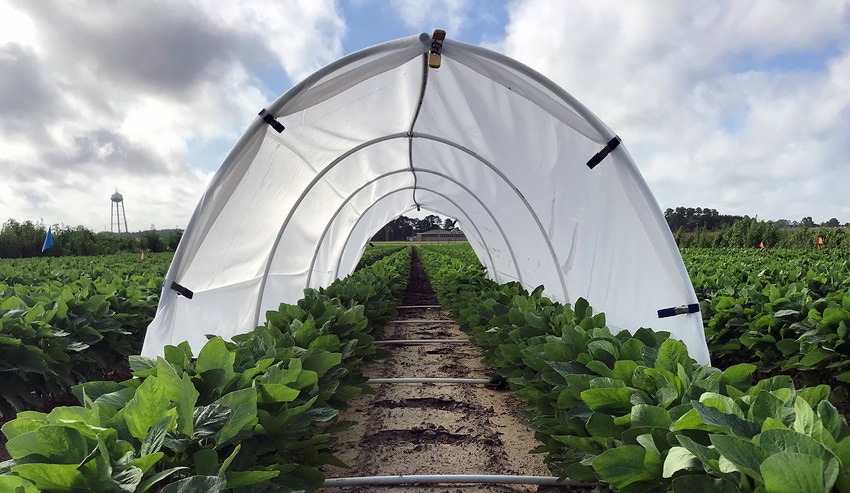
The future availability of certain dicamba-based products is unclear following a recent court decision. Still, researchers across the region conduct science-based evaluations to refine the uses of agricultural pesticides, including dicamba technologies.
One study taking place at the Sunbelt Ag Expo in south Georgia uses in-field tunnels in a novel way to understand how different dicamba products, rates, tank mixes and environmental conditions influence volatility and potential damage to non-dicamba resistant soybeans.
Large, on-farm trials, though essential, can take longer to conduct and to retrieve data, but smaller-scale plot work such as the tunnel research provides flexibility for quicker results with multiple tests, which is important data to collect now as EPA mulls over the science regarding dicamba, said Stanley Culpepper, University of Georgia Extension weed specialist.
"We've seen some significant differences in the (tunnel) studies that we've done. That's a positive. So, what we're doing today, and I'm just giving an example, say we get 30% damage on the soybeans two weeks from now based on what we do today. And something we can do tomorrow, we get 5% damage. That's a big deal. And that might mean the survival of this technology and these tools," he said.
About the Author(s)
You May Also Like






